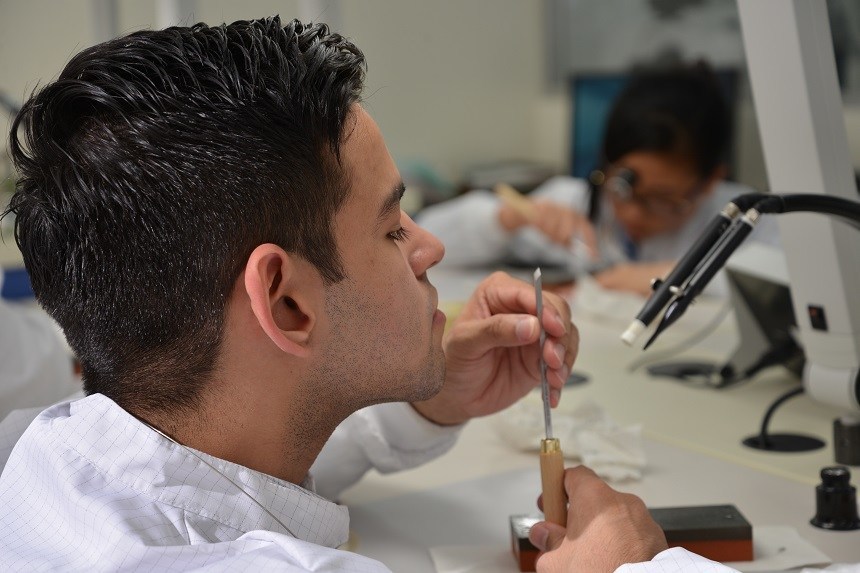
A career path in watchmaking is not something very often offered to kids leaving school. Before we know it, we’re off to college or straight into the world of work without so much as acknowledging the continued existence of horology. These days, I’m so ingrained in the watchmaking industry, it stuns me when people express amazement that assembly and after-sales processes are performed by real humans, not super-accurate machines. But you needn’t spend much time at the knee of an old watchmaker to understand why. The mechanics of haute horlogerie are not quite the same as anything else. And it isn’t about intricacy, per se, it’s about experience; it’s about all the silly little things that don’t make rational sense; simply put, it’s all about time. Patek Philippe have underlined their understanding of this fact by investing in an on-site school at their New York service centre.
By running a two-year course, dubbed the Patek Philippe Horology Programme Of New York, focused on equipping new students with the skills needed to service and repair an in-house movement, they are doing their bit to fill the yawning gap of trained horologists in North America. To find out more about the school, the motivations for its foundation, and the hopes Patek Philippe have for its development, I spoke to Larry Pettinelli, president at The Henri Stern Watch Agency (HSWA), a Patek Philippe subsidiary distributing and repairing Patek watches in the U.S.
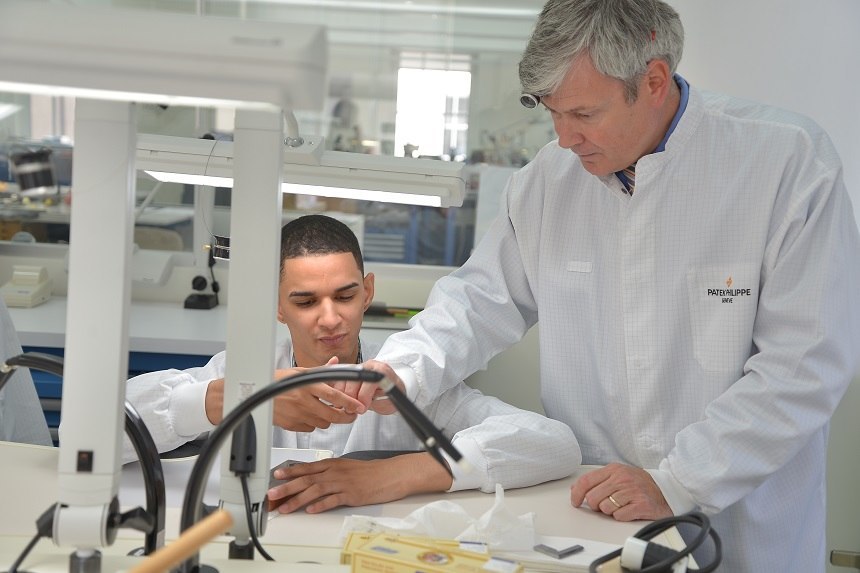
The watch industry has been growing steadily since 1989. The appeal of these evermore luxurious and complicated products is universal, but their production incredibly localised to central Europe. In the past, America had its own reputation as a watchmaking country. Brands like Hamilton and Elgin timed the early cross-continental rail-road system, but these companies laid down their tools long before watchmaking was reborn.
As the industry recovered, North America was left without the neccessery specialists. The country was reliant on a few schools nationwide, churning out about 40 or 50 graduates per year, and of those, only maybe 10% would have made the grade that Patek Philippe requires of all its staff. Currently, the US-based service team for Patek Philippe is less than 20 strong and deals with almost 10,000 repairs a year. Given the exacting standards the brand demands its watchmakers meet, the workload is unsustainable. This skill shortage means Patek Philippe is constantly looking for new experts, but they are hard to find. Of the 13 watchmakers that made it as far as a bench test last year, only two were deemed good enough to earn a post within the company, irrespective of their desperation for increased manpower.

That’s because Patek Philippe’s reputation for quality is inherent to the brand’s success. As much as Larry Pettinelli needs watchmakers, nothing could have forced him to risk the brand’s 176-year history. Perpetuating that kind of reputation is not easy when your customers frequently pass your product beneath the loupe. Excellence is imperative. But excellence does not grow on trees (it grows in workshops under the patient and passionate tuition of master horologists). And so Pettinelli set-about planting the seed that would grow into the Patek Philippe Horology Programme of New York.
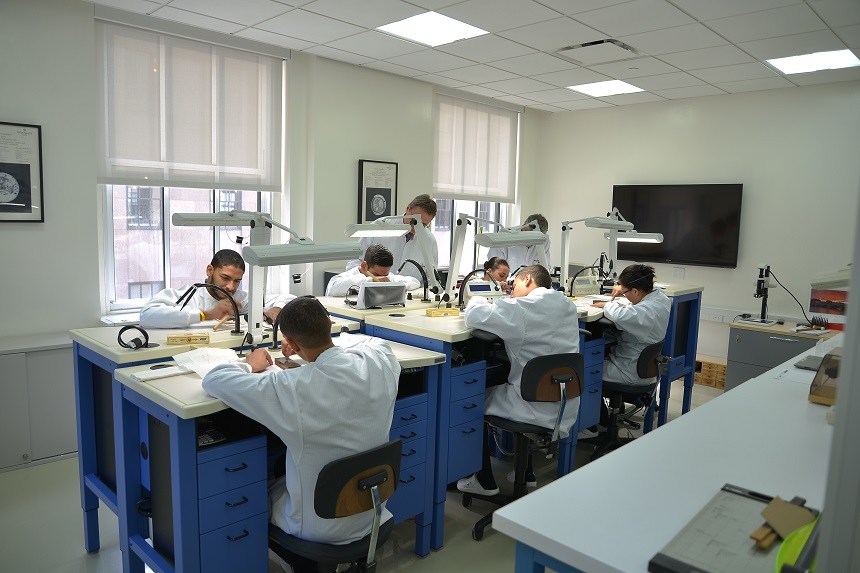
The training school, which is set within the workshop space of Patek Philippe’s Rockefeller base, was set-up this year and has just opened its doors to the first six students. The course lasts for two years (3,100 hours), and will culminate with the students traveling to Switzerland to sit the Patek Philippe level-two examination. Attaining this certificate would be a great achievement after two years and perhaps signal that a long and rewarding career with one of the Swiss powerhouses beckons. But that isn’t set in stone…

I was amazed at how much the course structure favors the student. In Europe, there are two ways I know of to attain the WOSTEP qualification: You either find a company to sponsor you through the course, or you fund it yourself. The fees are not cheap – certainly not affordable for a high-school graduate, or your average college kid. And so the vast majority apply for sponsorship from a major maison. Once secured, the sponsor pays the student a nominal wage throughout their studies and then insists they repay their investment by working for the sponsoring company for a set period of time (usually the same length of the course, although this can be negotiable). If you fail the course, you could be liable for the fees; if you jump-ship early before you’ve “repaid” your debt to your sponsor, they’re legally entitled to chase you for the balance. In short, you sign-up for the long haul and cross your increasingly nimble fingers that everything works out.

The course offered by the Patek Philippe Horology Programme of New York does not place the same conditions on its students. The course is totally funded and the students are provided with a stipend to cover certain expenses that may be incurred as a result of their attendance. Sure, you’ve got to find a way to support yourself throughout the duration of the course, but that’s no different from most college kids, who take part time jobs, borrow from someone, or stay with their friends or family while studying.
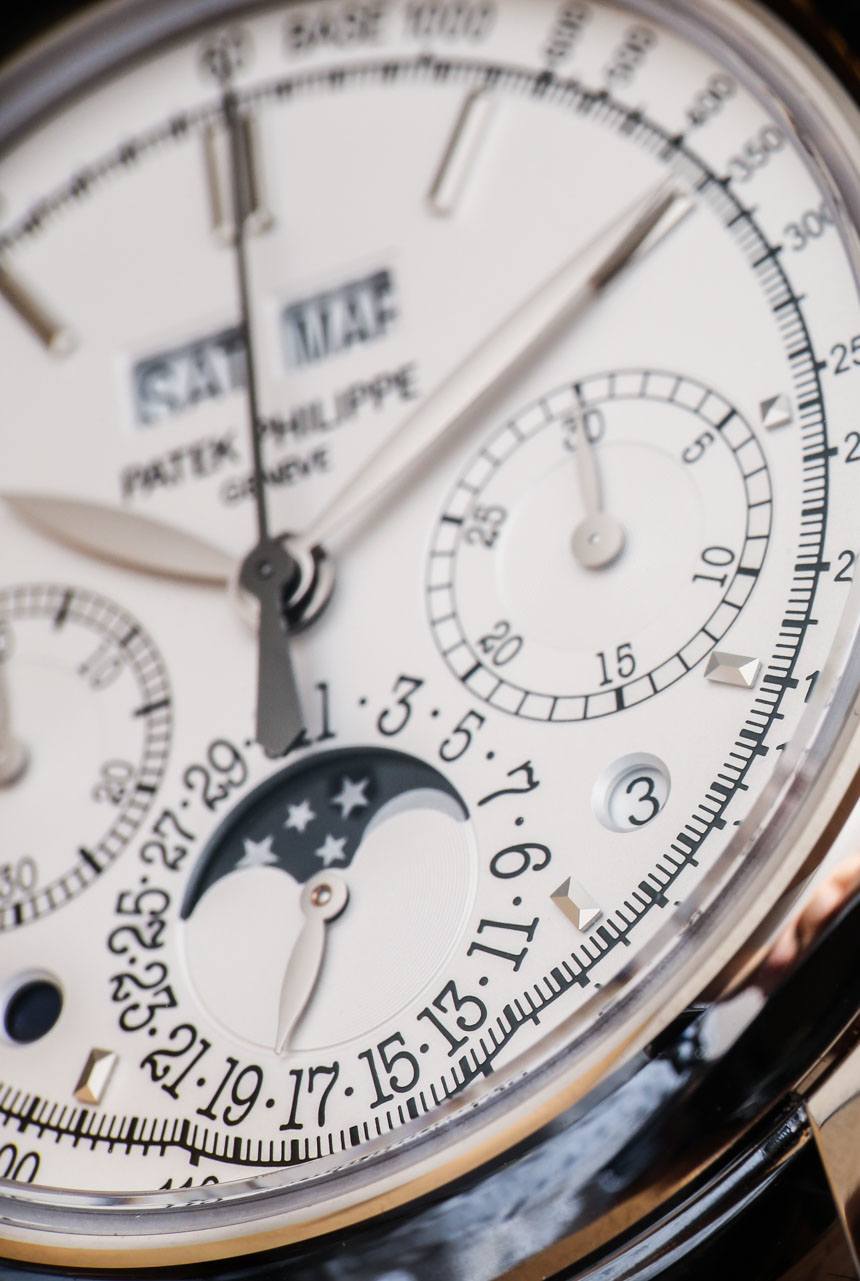
During the selection process, one prospective student proclaimed that she’d only attended the workshop tour, because she was sure the offer was a scam. And she has a point: To a European-trained watchmaker who studied for the opportunity to work at a below-market salary while having to rebuff the advances of rival companies desperate to poach pre-trained talent, it seems too good to be true. If at the end of the two-year course, the student decides to walk away, that’s cool; if they want to take the skills they’ve learnt to another company, that’s fine too. Why have Patek Philippe taken this risk? It’s because they believe the potential reward is worth it.
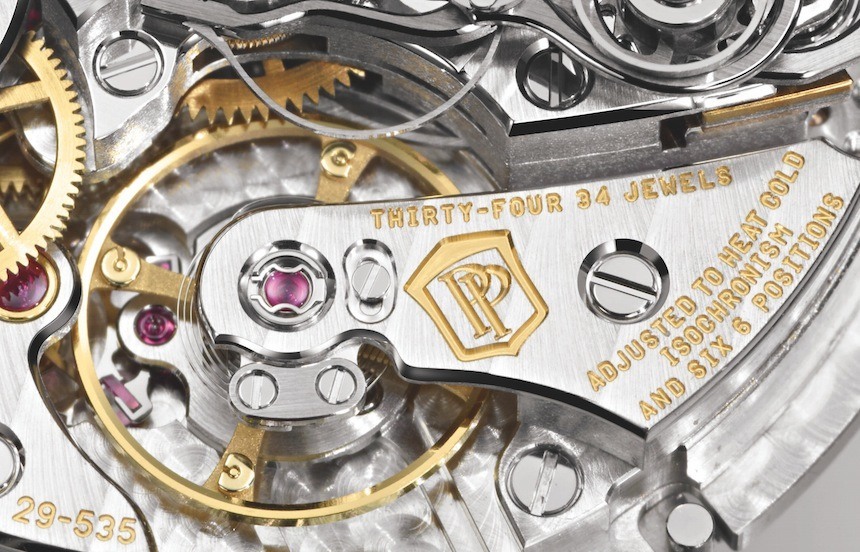
They are confident that after learning from their experts, being part of the workshop team, and immersing themselves in the culture and history of the brand that they will choose to stay. Handing their students that kind of agency takes guts, but students respect that kind of trust and, I think, are more likely to repay it with hard work and loyalty.
One of the main focuses of the interview process was to understand the motivations of the applicants. It’s my opinion that Patek Philippe approached the process in the best way possible. Watchmaking is a strange profession. It takes almost preternatural patience, a tireless eye for detail, and comfort with doing very similar tasks day in, day out. But it also takes a kind of intelligence – not necessarily an academic intelligence, but a logical and thorough mind. It also helps to have a good memory – your time at the bench will be the most useful textbook you could ever possess. The interview process took in face-to-face examinations, as well as logic and mathematics tests.
